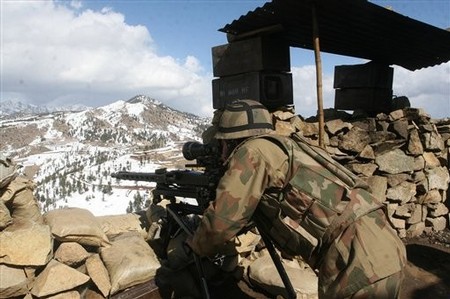Election postponement pushes oil price above $120 per barrel
By Martin Ayankola with agency report
Tuesday, 5 Apr 2011

Chairman of INEC, Prof. Attahiru
Jega
Oil prices rose above $120 a barrel on Monday due to geopolitical
risks, including the postponed elections in Nigeria.
Nigeria’s 2011 budget is benchmarked against an oil price of $65 per
barrel, meaning that the country is currently having a surplus of $55
per barrel.
The National Assembly elections, which were originally scheduled for
Saturday, April 2, 2011, were initially postponed to Monday by the
Independent National Electoral Commission, but pressure from
stakeholders, including the political parties, forced the electoral body
to again shift it to Saturday, April 9.
As a consequence, the presidential, state houses of assembly and
governorship elections have been rescheduled to now hold on April 16 and
26 respectively.
Reuters reported that Libya’s continuing conflict and unrest in Yemen
could also pose threats to oil supply in the Middle East, keeping the
Brent well supported, with Brent benchmark Forties cargo delays and
Nigeria’s election delay, adding to its strength.
An analyst at PFGBest Research in Chicago, Mr. Phil Flynn, was quoted
as saying, “Brent is up on Libya, Yemen unrest and the Nigerian
election.
“United States’ crude is hesitant because there is still worry that
the Federal Reserve may be nearing a rate hike or tighter policy, which
will lower liquidity and demand and strengthen the dollar.”
Brent crude price for May rose by $1.58 to $120.28 a barrel by
11.57am on Monday, just off its $120.63 peak, which was the highest
since August 2008.
Brent has recovered after falling below $108 in the aftermath of
Japan’s March 11 earthquake and tsunami.
US crude trading was choppy after posting a two-and-a-half-year high
above $108 a barrel ahead of the open outcry trading session in New
York.
Analysts and brokers said that a possible US Federal Reserve shift to
tighter monetary policy after recent strong jobs report and other
economic data limited US price gains. They added that the Brent market
remained well supported by its proximity and the more immediate impact
of the Middle East and Libya supply threats.
US crude rose by 14 cents at $108.08, off its earlier $108.78 peak
and the highest intraday price since September 2008.
US crude trading volumes remained thin on Monday, after the previous
two weeks saw the lowest weekly volumes for 2011.
Total US crude volume was just over 248,000 lots, 67 per cent below
the 30-day average, with Brent trading above 248,000 lots, but also
below average.
Written by furtune
 Breaking: Glenn Beck's Mercury Radio Arts and FNC have reached a deal that will see Beck "transition off of his daily program" later in 2011. Beck's much-reported troubles with the advertising community are believed to play a role in the decision. Click through to see what his plans are after he leaves Fox News Channel.
Breaking: Glenn Beck's Mercury Radio Arts and FNC have reached a deal that will see Beck "transition off of his daily program" later in 2011. Beck's much-reported troubles with the advertising community are believed to play a role in the decision. Click through to see what his plans are after he leaves Fox News Channel.







